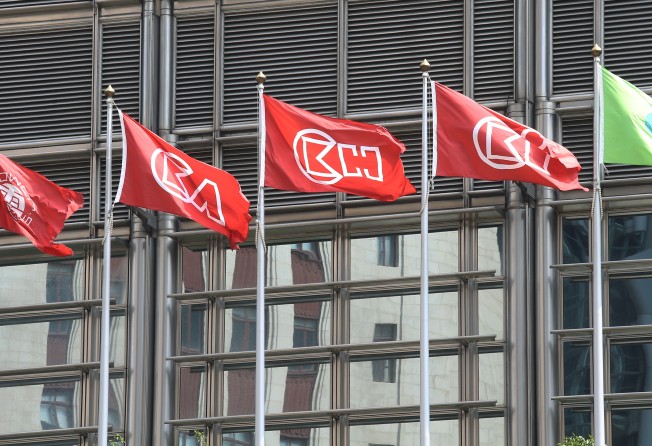Hong Kong’s property arms race set to slow as mainland developers abide by administrative controls

The era of mainland Chinese developers paying well over the odds for Hong Kong property appears set for a pause – providing respite, if only temporarily, from the wild dealmaking that prompted a crackdown by mainland authorities worried about potential fallout from “irrational or speculative investment”, according to an international law firm.
Under new rules that came into effect on March 1, real estate investments by offshore entities controlled by a mainland Chinese company need to get approval from mainland regulators. The rules apply to both direct and indirectly controlled companies.
“We may see a slowdown because Chinese companies investing in real estate really need to talk to the government and are not sure whether the government will approve their deals,” said Paul Guan, partner in the Real Estate practise of Paul Hastings. “It is unlikely that Chinese investors will offer prices a lot higher than local developers.”
Administrative rules unveiled by the National Development and Reform Commission (NDRC) in December were designed to target “irrational” overseas investment, particularly those mainland companies that piled into Hong Kong properties at record prices.
The policy, known as the Administrative Measures for Outbound Investment by Enterprises, set out a broadened definition of Chinese investors.
“Those high bids, most of the time, are not rational, which makes the Chinese government look bad. It is saying that Chinese investors do not care about the quality, financial return or future, they just want to spend money. That is called by the government irrational or speculative investment,” Guan said.
In a deal announced in November, a consortium called C.H.M.T. Peaceful Development Asia Property, bought an office block in Central, The Center, for HK$40.2 billion (US$5.15 billion) from a company controlled by Li Ka-shing, the world’s most expensive transaction for a single building.
“The reported buyer had no record in buying properties overseas. With such an astronomic figure, it is exactly what the regulator did not want to see,” said Guan.
In February, only three months after the deal was announced, mainland shareholder China Energy Reserve & Chemicals Group announced it would sell its 55 per cent stake in the consortium that bought the office tower to a group of Hong Kong-based tycoons.
In another example, the debt-laden Chinese conglomerate HNA has over the past month sold three out of four residential property sites it bought in Hong Kong’s Kai Tak area for HK$22.36 billion.
The firm raised eyebrows in Hong Kong when it paid a record price of HK$13,600 per square foot for one of the Kai Tak sites last November. The sale of the three plots allowed HNA to make a profit of HK$2.5 billion.
“The government is trying to restrict outflows of money,” said Guan. “Buying an office building, a residential project or acquiring land will be deemed as restricted foreign investment and they [mainland companies] need to get approval.”
Chinese developers have won 11 per cent of bids by value in Hong Kong government land auctions since April, representing a drop from about 50 per cent in 2015 and 2016, according to data compiled by Standard & Poor’s.
“We attribute the decline to the tight capital controls and scrutiny on overseas property investment,” said Esther Liu, S&P Global Ratings credit analyst. “Moreover, the slower project cycles in Hong Kong than the Chinese developers expected was an added burden.”
However, Guan said mainland authorities were likely to look favourably upon mainland companies that have a solid track record of making sensible overseas investments for the purpose of diversification.
“A lot of companies have been doing outbound investment for a long time. They do not overbid and have proved that their overseas investments are for the purpose of diversifying their portfolios for better returns,” Guan said.
“If they talk to the NDRC, the authority will allow some flexibility.”